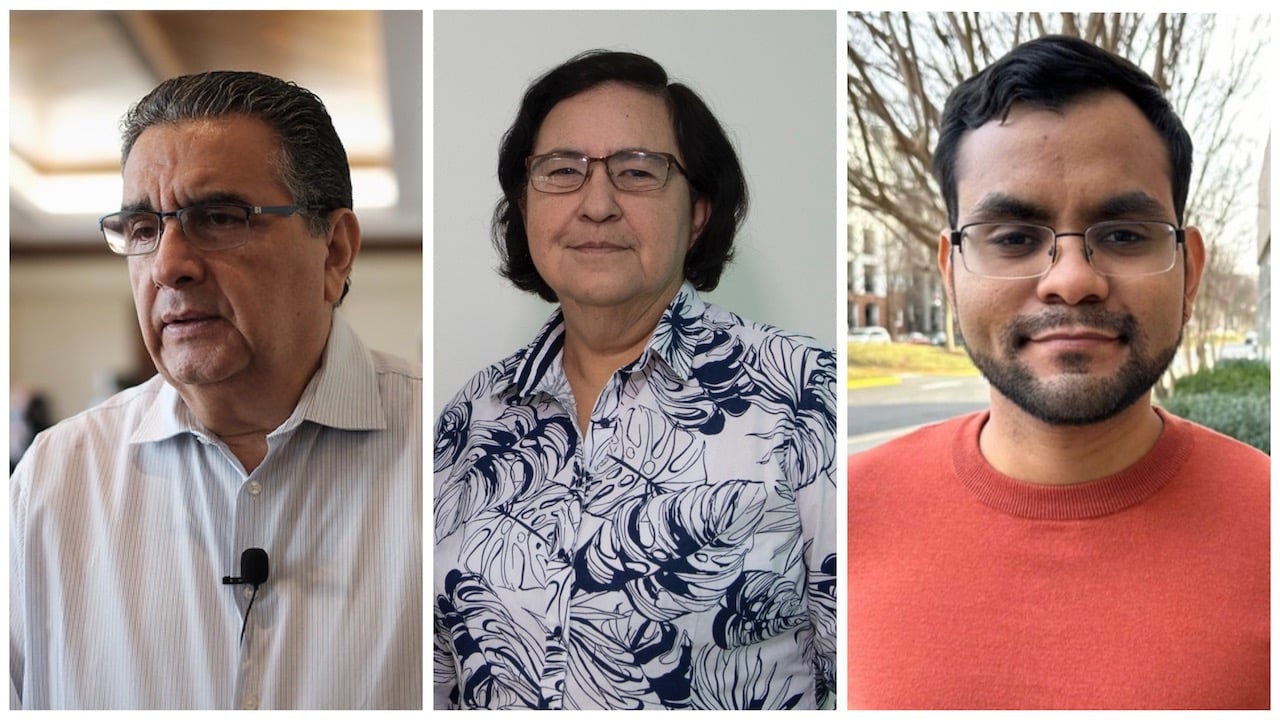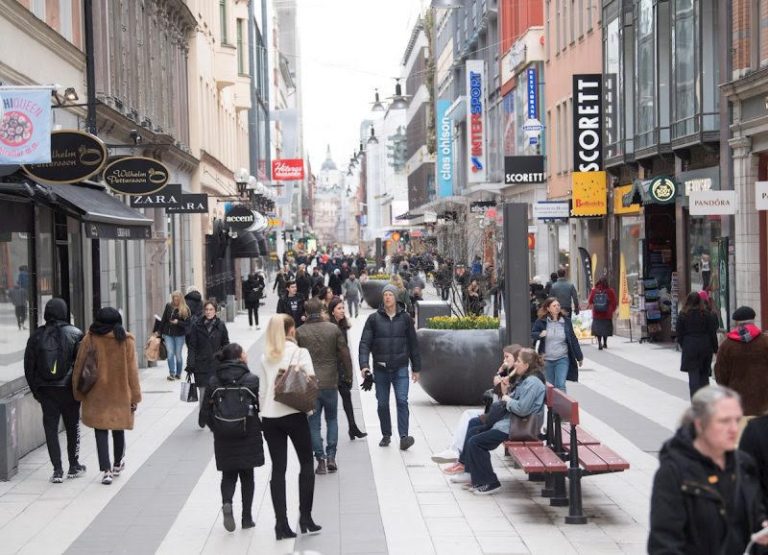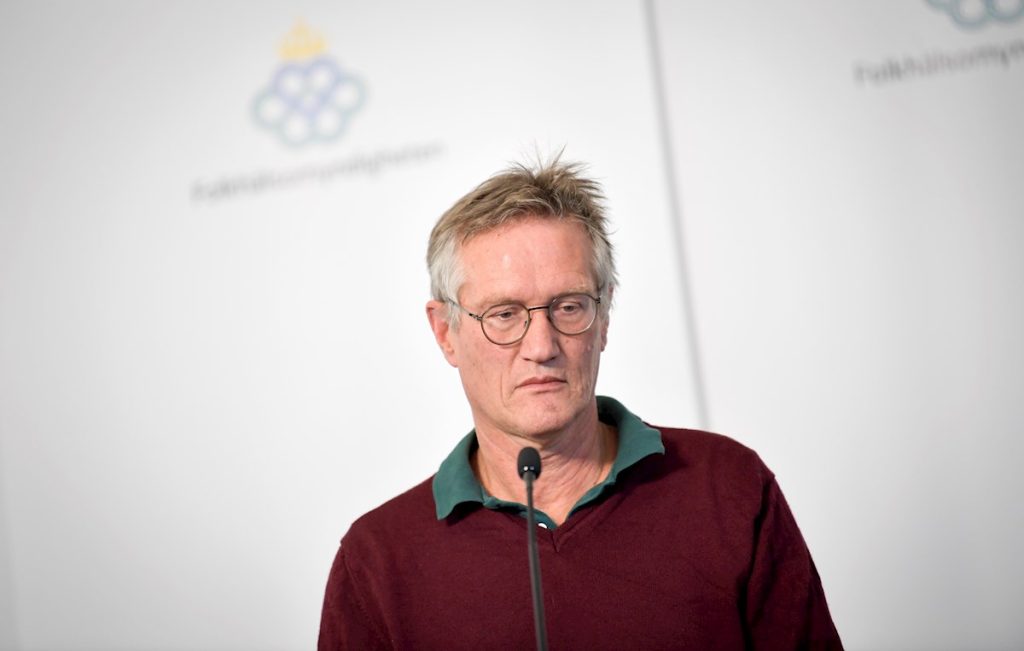7 de junio 2020

Dialogue and Elections: “The Peaceful Way Out of the Dictatorship”

PUBLICIDAD 1M
PUBLICIDAD 4D
PUBLICIDAD 5D
“Nicaragua is the same example as Sweden, but among developing countries,” asserts the Government in its “white paper” on the pandemic.

Sweden admits flaws in its strategy against the new coronavirus and warned that they should have adopted tougher restrictions to reduce the mortality rate. The Swedish model is the example that the regime of Daniel Ortega and Rosario Murillo say they have followed to fight Covid-19 in Nicaragua.
In public and in private, Ortega’s followers refer to the Swedish management to justify their refusal to implement the recommendation of the World Health Organization (WHO), on a mandatory quarantine. “Nicaragua is the same example as Sweden, but among developing countries,” the regime asserts in its “white paper” on Covid-19.
“Nicaragua and Sweden represent alternatives to lockdown in a developing country and a developed country, respectively,” they stressed in that document.
Sweden, a country of about 10 million people, since the beginning adopted a softer strategy than most of the European countries, with many general recommendations appealing to individual responsibility to protect at-risk groups, at the same time that it introduced restrictions on public life.
The Swedish strategy has been criticized by several European neighbors, but this time the judgement came from within. Public Health Agency chief epidemiologist, Anders Tegnell, assured that Sweden should have taken more measures at the beginning of the coronavirus pandemic, acknowledging that too many people have died too soon.
“Sweden is one of the few countries that was locking down gradually, the rest started with a lot at the same time. The problem is that it is not known which measures are more effective, we will probably know when we start to lift them,” said Tegnell, the visible head of the least restrictive strategy in the Scandinavian country.
Sweden has registered 38,589 cases and 4,468 deaths, with a rate of 43.2 dead per 100,000 inhabitants, much higher than the rest of the Nordic countries: Norway reports 237 deaths; Denmark, 580; and Finland, 320, according to a publication in the Spanish newspaper “El País.”

Public Health Agency chief epidemiologist, Anders Tegnell. Photo: EFE
“If we were to face the same disease knowing what we know today, I believe that we would end up doing something halfway between what Sweden did and what the rest of the world did,” Tegnell pointed out on Wednesday, in an interview with the public station Radio Sweden.
Tegnell spoke of “potential for improvement,” although he appeared unsure whether the solution would have been to have taken more measures and for longer, all at once or which ones.
In its “white paper,” the Ortega-Murillo government assures that “with the lifting of the ‘lockdowns,’ all the countries of the world will have to combine defense against the coronavirus with the functioning of society, just as Nicaragua and Sweden have done from the beginning.”
Despite the regime’s insistence on comparing its strategy with the Swedish one, independent doctors and scientists have warned that there are no points of similitude. Molecular biologist and Vice President of the Nicaraguan Academy of Sciences, Jorge Huete, in the article “The Nicaraguan Approach: Defy Science with Ignorance at the Helm,” published on May 29, states that “it is more than absurd to compare Nicaragua with Sweden. Both countries are diametrically distant in terms of their essential health indicators.”
He explained that “Nicaragua has nine doctors for every 10,000 inhabitants, while Sweden has 40, more than four times. Per capita spending on health in Nicaragua is 192 US dollars (including the patient’s contribution), while in Sweden it is 5,905 US dollars, more than 30 times that of Nicaragua.”
The Ortega regime does not mention that Sweden closed high schools and universities—but not nurseries, grade schools or restaurants—and that it banned visits to retirement homes and has limited the number of people allowed at any gathering to 50.
The Swedish Parliament also approved in April a temporary emergency law that allows the Executive to close ports, airports, train stations, shopping centers and restaurants, in addition to redistributing material and medicine without going through the Parliament, but this regulation, in force until June, has not been implemented.
Swedish Prime Minister, the social democrat Stefan Löfven, announced an investigation into the management of the health emergency for this summer, according to a local newspaper.
“We need to take a general approach to see how (management) has worked at the national, regional and local level,” Löfven said. “We must admit that when it came to caring for the elderly, in terms of the spread of the infection, the plan didn’t work. It is obvious. To many elderly have passed away. About half of those that have died of Covid-19 in Sweden have done so in retirement homes, according to “El País.”
On the economic front, the strategy will not yield good results either. Finance Minister Magdalena Andersson recently warned that Sweden faces its worst economic crisis since World War II, with a GDP plummeting 7% in 2020.
Archivado como:
PUBLICIDAD 3M
Confidencial es un diario digital nicaragüense, de formato multimedia, fundado por Carlos F. Chamorro en junio de 1996.
PUBLICIDAD 3D